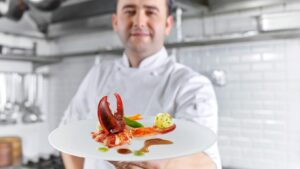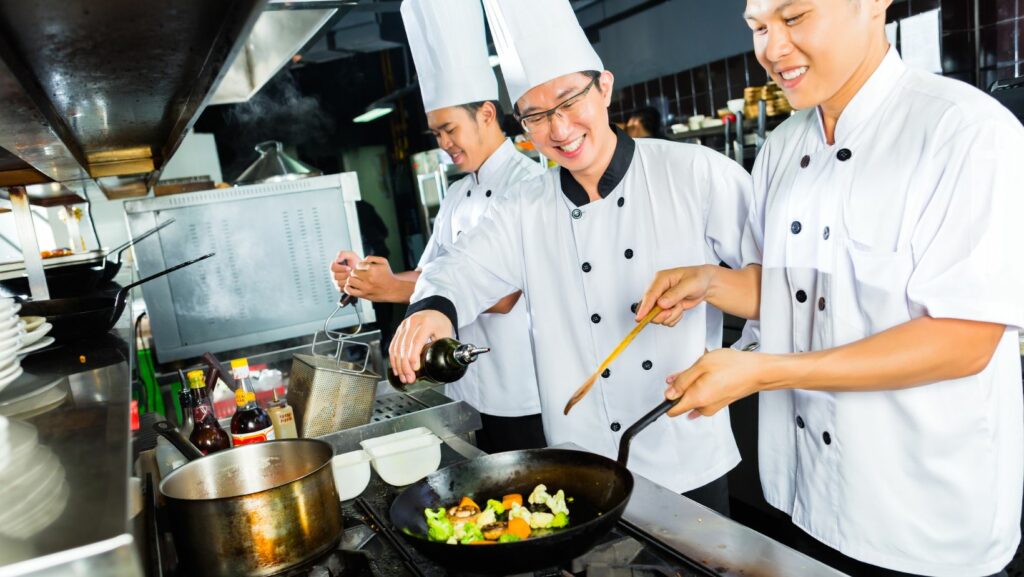Dive into the world of culinary arts as we explore the term “god of cooking”. This phrase, often used to describe master chefs who’ve transformed the food industry, speaks volumes about their culinary prowess. But, what does it truly mean to be a ‘god’ in the kitchen?
Join us on this flavorful journey, as we celebrate the artistry, passion, and skill that set these culinary maestros apart. Get ready to be inspired by the gods of the gastronomic world.
God of Cooking

Tracing back the roots of the “God of Cooking” title is akin to an epic culinary journey. Its origin is rooted firmly in the essence of gastronomy, where skill and passion combine to create masterpieces. Long before the proliferation of celebrity chefs, there were many culinary genius who quietly perfected their craft, scouring local markets, experimenting with unique ingredients and honing time-tested techniques. These were the original gods of cooking, gracing the kitchens of the world with their expertise.
Even in ancient cultures, certain chefs, through their unrivaled culinary prowess, were deemed gods in their own right. Emperors and kings, notably in France and China, employed chefs with exceptional culinary prowess who could create dishes that left diners in awe. These chefs became the pioneers, their innovations setting the foundation for future gastronomical breakthroughs. They were the initial definition of a “God of Cooking”, individuals whose cooking transcended the ordinary, becoming something of an edible art form.
Key Contributions to Culinary Arts

“Culinary gods” made significant strides in the gastronomical domain. They set benchmarks in the industry by fostering innovative techniques. Gastronome Auguste Escoffier, a forerunner, standardised kitchen operations and streamlined brigade de cuisine, revolutionizing traditional methods. His approach greatly enhanced kitchen efficiency, and the rigidity that he introduced remains a norm in commercial kitchens.
Madame Guérin, another pioneer, defied norms and championed healthy dieting, introducing whole meals aimed at combating malnutrition. She marveled the culinary world by altering societal perceptions on nutritional eating.
Finally, listed among the greats, Ferran Adrià developed molecular gastronomy. His novel approach made him a frontrunner, exciting taste buds while fascinating minds by exploring the “science” of cooking. He was responsible for transforming the culinary world’s view on what’s possible in a kitchen.
Cultural Impact of the “God of Cooking”
The cultural impact of the “God of Cooking” concept reaches beyond borders, influencing food enthusiasts and professionals across the globe. Exceptional figures like Escoffier, Guérin, and Adrià not only excelled in culinary arts but also modified the texture of gastronomy, impacting people’s perception of food. Escoffier’s revolutionized cooking techniques became the gold standard in professional kitchens worldwide.

Guérin’s focus on healthy eating triggered a shift in societal norms around food, placing nutrition on par with taste. Adrià’s introduction of molecular gastronomy added a scientific dimension to cooking, sparking curiosity and exploration. These transformative contributions have paved the way for the rise of multi-starred Michelin chefs and included culinary skills in the classification of fine arts. Indeed, the God of Cooking title carries weight, bridging cultures and establishing a universal admiration for culinary craftsmanship.
The Legacy of the “God of First” in Various Cuisines
The “God of Cooking” isn’t just a title. It’s a legacy that continues to shape the culinary world. From Escoffier’s universal cooking techniques to Guérin’s health-conscious approach and Adrià’s groundbreaking molecular gastronomy, these masters have left an indelible mark on how we perceive and appreciate food. They’ve elevated cooking to an art form, inspiring countless chefs to push boundaries and innovate. Their influence transcends borders, bridging cultures through a shared admiration for culinary craftsmanship. As we savor their extraordinary dishes and techniques, we’re not just enjoying a meal. We’re partaking in a rich, global tradition of culinary excellence that continues to evolve and inspire. The “God of Cooking” legacy lives on, fostering a universal love for food and driving the next wave of gastronomical innovation.

